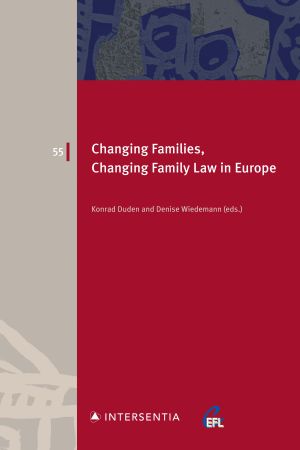
What constitutes a “family” in Europe? The answer to this question is constantly changing and increasingly varied. The standard of what a family looks like A– a married, opposite-sex couple that lives with their biological children under the same roof and where the husband is the sole or primary bread-winner –has been eroding for a long time. The opening contributions to this book discuss rapid and substantial changes in family structures, concepts and values that have emerged in Europe in recent years. Conceptions of marriage and partnership have been affected by this change: from the increasing recognition of same sex-marriages, the acceptance of private divorce and the changing treatment of early marriages, to the increasing legal protection of partnerships outside of marriage. Transformation has also occurred in the area of filiation: assisted reproduction – particularly surrogate motherhood – is creating families that could not have previously existed. In some places, there is even discussion regarding granting parentage to more than two persons. Queer families add an additional layer of complexity: this starts with the recognition of the gender identities of transgender or non-binary persons, and continues with the question of the parentage of these persons. Finally, changing views of gender roles and a greater recognition of children’s rights make it necessary to reconsider the balance between the promotion of equality, self-reliance and autonomy of family members and the need to protect financially and physically vulnerable family members.
This book’s contributions display a fragmented situation across the European continent. In some areas the developments are marked by a clear divergence between Western and Eastern European jurisdictions. These differences between Eastern and Western European perceptions of family and gender identity have a tremendous symbolic and political importance and undermine efforts to harmonize (international) family law within Europe. Nevertheless, these differences should not be overstated, to avoid deepening the existing rifts even further. Instead, this book highlights ways of overcoming divergences through exploring conflict of laws, international civil procedure, human rights jurisprudence and even harmonized substantive family law.